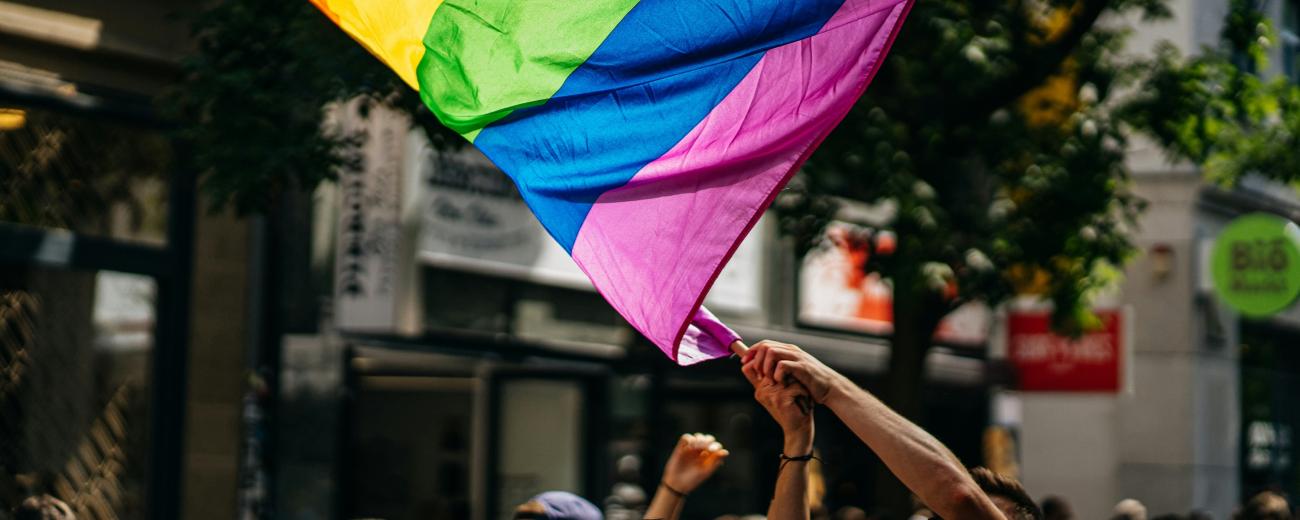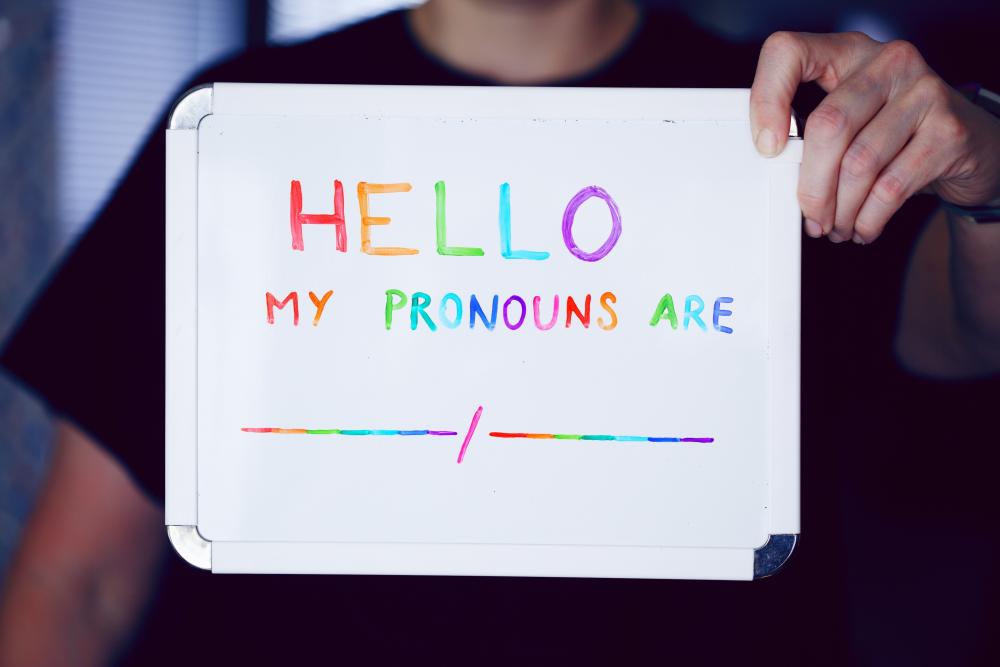The power of sharing your pronouns: A small act of inclusion with a big impact


This Pride Month, Sophie Dodsworth advocates for normalising the sharing of pronouns, a small yet impactful act that fosters inclusivity at work and beyond.
The year before last, an internet friend of mine—a trans woman who lives in Canada—was choosing the last optional module to complete her degree. She had a shortlist of four or five that all sounded good, but her final choice was the only one with a lecturer who gave their pronouns. Knowing she'd be taught by an ally made her feel a little bit safer and more welcome.
Why put your pronouns in your email footer?
Why put your pronouns in your Microsoft Teams profile or your email footer? Why give pronouns when you introduce yourself in a meeting? If you're cis, it's probably not something you've considered doing. Surely your gender is obvious? (As a trans woman, I sometimes feel the same.)
If you give your pronouns, then people will take it as a sign you want to be inclusive and to make queer, trans, non-binary, and intersex people feel comfortable.
Of course, your gender might not always be obvious - maybe your name is gender-neutral or perhaps it's considered "foreign" and unfamiliar - but in practice, if you give your pronouns, then people will take it as a sign you want to be inclusive and to make queer, trans, non-binary, and intersex people feel comfortable.
Giving pronouns: "Cis people go first"
Even if you don't know any queer, trans, non-binary, or intersex people, then it's still good to use pronouns to show you're an ally. For a start, are you sure you don't know anyone? Perhaps they're not sure if it's safe to be out around you. Showing you're an ally can help with that. Even more importantly, though, it's a gentle reminder that inclusion matters. When cis people give their pronouns as a routine courtesy, everyone makes fewer assumptions, and the rare bigots are less inclined to air their views.
When cis people give their pronouns as a routine courtesy, everyone makes fewer assumptions, and the rare bigots are less inclined to air their views.
If you're not cis, then pronouns can be more complicated. Your gender might not be obvious or not obvious to cis people. But equally, you might not want to take the risk of outing yourself when you don't know it's safe - from overt transphobia or simply from being treated as a curiosity or an inconvenience. This is why the attitude among my trans and non-binary friends is "cis people go first".
What to remember
And that brings me to two important things to remember:
- Pronouns are not just for 'diverse' people. In fact, it's more important for allies to use them wherever they can.
- Giving your pronouns is always optional. No one should ever feel pressured or required to give their pronouns because no one wants to be forced to out themselves and because no one should have to pretend to be an ally.
As for what pronouns to use, that's up to you. She/her, he/him, and they/them are the obvious and familiar options, but there's room for nuance too. He/they or they/she are good if you mostly feel like one gender but don't fully identify - you don't have to be trans or non-binary to feel that way, Or there are less well-known options if you're feeling adventurous - xie/xir, fae/faer, it/its, the wide world of xenogenders, and many more. Don't be afraid to experiment and be playful - there's a set of pronouns out there that's right for you.
Header image: Alexander Grey via Unsplash
About the author
Sophie Dodsworth works in the SOAS IT Department, and as an advocate for trans inclusion at SOAS.



